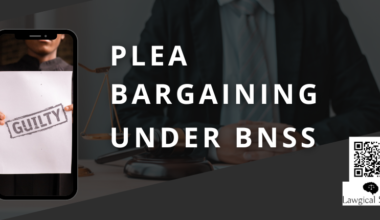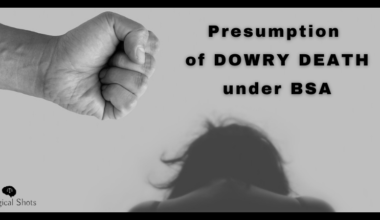Most people know that non-payment of debt may cause legal troubles, but a few have clarity about what exactly may lead the way to jail. Sometimes, people threaten to lodge case under Section 138 for a failed UPI Payment, but the fact is, that can never ever succeed. So what exactly does the Negotiable Instruments Act Section 138 lay? Is it any kind of payment whose breach may initiate criminal proceedings? Well, for starters, only those payments made by a cheque are involved here. However, not all cheque bounces can be prosecuted in the Courts. So what exactly is punishable under Section 138 of NI Act? Here is an attempt to simplify the clogged paths of the same and explain the technicalities of legal provision for cheque bounce.
Section 138 of Negotiable Instruments Act, 1881
Section 138 of the NI Act provides punishment for dishonour of cheque for insufficiency, etc. of funds in the bank account. The provision states that “Where any cheque drawn by a person on an account maintained by him with a banker for payment of any amount of money to another person from out of that account for the discharge, in whole or in part, of any debt or other liability, is returned by the bank unpaid, either because of the amount of money standing to the credit of that account is insufficient to honour the cheque or that it exceeds the amount arranged to be paid from that account by an agreement made with that bank, such person shall be deemed to have committed an offence and shall, without prejudice to any other provision of this Act, be punished with imprisonment for [a term which may be extended to two years’], or with fine which may extend to twice the amount of the cheque, or with both”.
There are further pointers explaining and restricting the scope of dishonour of cheque under Section 138 of NI Act:
- Cheque was presented within 6 months of date on which it was drawn, or within its validity, whichever earlier;
- The payee made a demand notice in writing for payment of amount to the drawer of cheque within 30 days of gaining knowledge about the cheque bounce from the bank;
- Drawer of the cheque fails to pay the amount within 15 days of receiving the cheque bounce notice.
- The debt or liability herein should be legally enforceable.
Explanation
In simple words, when a cheque is presented to the bank, which was initially drawn against a debt, and the same is returned unpaid since there were insufficient funds, or because the said amount exceeded the limit set for the account, it constitutes dishonour of cheque under Section 138 of NI Act. If the requirements of time limit, legal notice and debt are fulfilled, the drawer of cheque may be punished with imprisonment of maximum 2 years, or with fine which could be twice the amount in cheque.
Section 138 of Negotiable Instrument Act Time Limit
Once the payee comes to know about the return of the cheque unpaid by the bank, he should send the legal notice to the drawer of the cheque within 30 days. The said notice gives the drawer 15 days to pay the said amount, and the cause of action under Section 138 of NI Act begins from the 16th day. It may be noted that condonation of delay may be allowed, but convincing the Courts may end up being a tedious task.
Also read – Cheque Bounce Case Facts and Laws
Section 138 of NI Act – Frequently Asked Questions
Q – Is section 138 civil or criminal?
A – Cheque bounce cases under the Negotiable Instruments Act are neither purely criminal nor remain civil at all. They may be termed as quasi-criminal. The Court at an instance interestingly explained that proceedings under Section 138 of NI Act may be termed as “Civil Sheep in a Criminal Wolf’s Clothing”. The reason being that the provision is picturised as a criminal proceeding to give some teeth by adding imprisonment as a punishment. However, the purpose still remains not to punish the wrongdoer but to compensate the complainant who faced financial risks and losses.
Q – What is a notice under 138 NI Act?
A – As mentioned earlier, the payee who comes to know about the cheque returned unpaid from the bank has to send a Legal Notice for cheque bounce. The said notice aims at reminding the drawer of cheque that the payment has not processed for the cheque he/she drew, and that he may complete the payment within the stated period, or legal action may be taken for the dishonoured cheque.
Q – Can we file FIR for cheque bounce?
A – A First Information Report (FIR) is filed in serious crimes, which are included in the list of cognizable offences. In case of Section 138 of Negotiable Instruments Act, 1881, the payee has to approach the Magistrate of appropriate jurisdiction to lodge a criminal complaint.
Q – What is the minimum punishment in cheque bounce case?
A – The punishment for cheque bounce under Section 138 of NI Act is maximum imprisonment of 2 years or with fine which could be twice the amount involved in the cheque payment.
Q – Can I be jailed for cheque bounce?
A – Yes, the punishment for cheque dishonour is imprisonment which may be extended to 2 years. Hence, if the offence is proved against the drawer of cheque, and sentence of imprisonment is passed, the person may have to go to jail. Also explore about compounding in cheque bounce cases.
Q – Can I get bail in a cheque bounce case?
A – Yes, dishonour of cheque under Section 138 of Negotiable Instruments Act is a bailable offence. Hence, regular bail may be obtained in a cheque bounce case.








